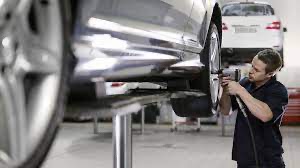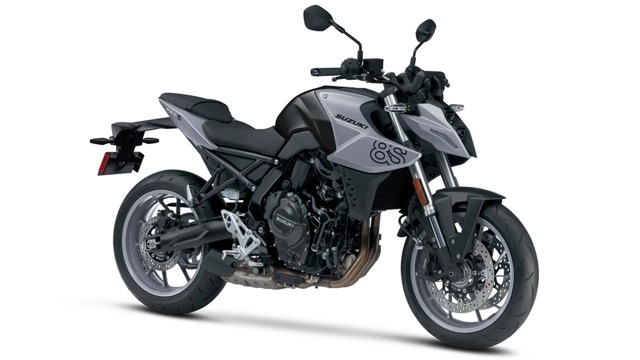Car Repair Insurance Your car insurance policy does not provide coverage for mechanical breakdowns, such as blown gaskets or electrical system issues. It typically covers only accidents you cause, and additional coverage like collision and comprehensive insurance is needed for problems like car fires or theft. To get coverage for mechanical problems, you can consider purchasing car repair insurance, also known as “mechanical breakdown insurance,” which pays for such repairs and is available from insurance companies. It is similar to an extended car warranty, but with the distinction that it is purchased from an insurance provider.
Outlines Of Guide
ToggleCar Repair Insurance
Determining whether car repair insurance is worth it depends on several factors. Car repair insurance, also known as extended warranty coverage, can provide financial protection in the event of unexpected repairs or breakdowns. However, it’s important to consider the age and condition of your vehicle, as well as your own personal budget and risk tolerance. If you have a newer vehicle that is still under the manufacturer’s warranty or if you have significant savings to cover potential repairs, car repair insurance may not be necessary. On the other hand, if you have an older vehicle that is more prone to mechanical issues or if you prefer the peace of mind that comes with knowing that repair costs will be covered, car repair insurance could be a worthwhile investment. It’s recommended to carefully evaluate your individual circumstances and compare the cost of the coverage with the potential benefits before making a decision.
What Does Car Repair Insurance Cover?
The items covered by mechanical breakdown insurance depend on the car insurance company but typically include:
- Air conditioning
- Brake system
- Convenience technology (such as convertible top, keyless entry and sunroof)
- Cooling and heating systems
- Drive axle
- Electrical systems (including the car’s computer)
- Engine
- Exhaust
- Fuel systems
- Safety technology (like blind sport awareness system and camera)
- Steering components
- Suspension systems
- Transmission
Generally, there’s a car insurance deductible if you make a claim under mechanical breakdown insurance. A deductible is what the amount subtracted from a claim payment. For example, if you have a $250 deductible and your car repair insurance claim is $1,000, your car repair insurance company’s claims check will be $750. The deductible amount can vary by insurer. For instance, Allstate has a $50 deductible, Geico mentions $250 and Progressive says you can choose one between $100 and $500.
What Is Not Covered By Car Repair Insurance?
The list of items and damages not covered by mechanical breakdown insurance will vary by car insurance company but it generally does not cover:
- Corrosion and rust
- Damage caused by poor maintenance, like infrequent oil changes or using the wrong type of fuel
- Damage caused in a car accident
- Non-mechanical items, like vehicle trim and molding
- Normal wear and tear, like worn brake pads and tires
- Parts or items covered by a recall
- Parts or items covered by a voluntary manufacturer repair program
- Parts or items covered by your car warranty
- Pre-existing damage before you bought the insurance
- Routine maintenance, like engine tune-ups, oil changes, suspension alignment, tire rotation and wheel balancing
Is My Vehicle Eligible For Car Repair Insurance?
Qualification for purchasing mechanical breakdown insurance typically relies on the age and mileage of the vehicle and the criteria set by the insurance provider. For instance, Geico allows the purchase of mechanical breakdown insurance for new or leased vehicles that are under 15 months old and have fewer than 15,000 miles. The coverage can be renewed for up to seven years or 100,000 miles. However, National General Insurance has more stringent regulations. A policy we examined provided mechanical breakdown insurance for vehicles in the current model year and up to seven years prior, with an odometer reading of less than 72,001 miles. Nevertheless, there is a condition: when it’s time to renew the policy, if the car has over 72,001 miles or is projected to surpass that mileage, the mechanical breakdown insurance will be excluded from the policy.
The National General Insurance policy includes an additional mileage rule: If your odometer reading exceeds 90,000 miles during the policy term, you will no longer have coverage for subsequent losses, and mechanical breakdown insurance will be revoked from the policy. For instance, if you buy mechanical breakdown insurance for a car with 65,000 miles and then drive another 25,000 miles during the policy term, you will lose car repair coverage once you surpass 90,000 miles. Your car insurance company may have other eligibility requirements. For instance, the National General Insurance policy we examined requires you to have comprehensive car coverage in order to qualify for car repair coverage. Some types of cars may be excluded from mechanical breakdown insurance. Your car insurance company will provide a list of vehicles that are either eligible or excluded from coverage.
Some insurers that offer car repair insurance include:
- Allstate
- Geico
- Mercury
- Progressive
Car Repair Insurance vs. Extended Warranties
Special auto insurance is not always required for reimbursement of mechanical and electrical repairs. Car warranties and car repair insurance both provide coverage for engine, transmission, and electronic malfunctions, including the car’s computer. The extent of coverage depends on the specific warranty or car repair insurance policy.
Warranties can generally be broken down as:
New car warranty
When purchasing a new car, a typical inclusion is a warranty that covers your vehicle for a certain number of years or miles. For example, you may have a three-year or 36,000-mile warranty on the car. Once you hit one of those milestones, whichever comes first, the new car warranty typically expires. It’s worth noting that different manufacturers may offer varying lengths and terms for their new car warranties. Additionally, some warranties may cover specific components of the car such as the powertrain or emissions system. Be sure to thoroughly review and understand the details of your new car warranty to ensure you are aware of what is covered and for how long.
Extended car warranty
A new car warranty can be extended or purchased to cover a used car. You can usually purchase an extended car warranty from either an auto dealership or a third-party company.
Here are some key differences between car repair insurance and car warranties:
- Car repair insurance is purchased through a car insurance company.
- Extended car warranties are usually sold through car dealerships, auto clubs and other companies.
- Car repair insurance is typically added to your car insurance bill, which you can pay in monthly, semi-annual or annual installments, depending on the policy.
- Extended car warranties are typically paid as a lump sum or rolled into your car loan payments.
How Does Car Repair Insurance Work?
In the event of a car problem such as a mechanical failure, you have the option to submit a car insurance claim to your insurer. An appointed claims representative will assess whether the issue qualifies for coverage. For instance, if your car experiences electrical malfunctions due to a defect, it is likely to be covered. However, if the electrical issues result from an error during the installation of an aftermarket radio, it is unlikely to be covered. If your car problem is within the coverage of your car repair insurance, you can have it repaired at a chosen shop. Note that certain car repair insurance policies may have limitations on which repair shops can be used. It is advisable to verify the coverage of the repair with your car repair insurance company before proceeding to the shop. For example, Progressive might require a damage inspection before authorizing repairs.
Is Car Repair Insurance Worth It?
Depending on the cost of the repairs, car repair insurance could be beneficial as it provides protection against unexpected repair expenses. For instance, repairing a car’s air conditioner may range from $100 to $1,500, while transmission replacement can cost between $1,500 and over $6,000. If you would struggle to cover major mechanical failures out-of-pocket and your vehicle is no longer under warranty, car repair insurance may be a worthwhile investment, although it’s important to note that a deductible will apply if a claim is made.
Car Repair Insurance Alternatives
If car repair insurance is not for you, you’ll still want to be prepared for unexpected vehicle expenses. Here are ways to try to prevent surprise repair bills:
Research make, model and year. Make sure to research the reliability of a car before making a purchase. You can begin by consulting Consumer Reports’ reliability guide.
Maintenance. Keep your vehicle well-maintained based on the car manufacturer’s recommended maintenance schedule.
Save money toward repairs. Common vehicle repair costs are between $500 and $600, but can go much higher, according to AAA. AAA recommends you set aside at least $50 per month to cover routine maintenance and unexpected repair bills.
Find a reliable mechanic. If your car needs repair, you’ll want a good mechanic. A good start is finding a shop that specializes in your type of car, reading customer reviews and getting recommendations from friends and family. Ask your mechanic if they have a certification from the National Institute for Automotive Excellence and what type of warranties they give on repair work.
Warranty. If your car is already under warranty, you likely don’t need car repair insurance. Car warranties and car repair insurance are similar, so you don’t need to pay for an overlap in coverage.
Car Repair Insurance At-a-Glance
| Item | Covered by car repair insurance? |
|---|---|
| Air conditioning defects | ✓ |
| Engine defects | ✓ |
| Electronic system defects | ✓ |
| Exhaust system defects | ✓ |
| Fuel system defects | ✓ |
| Transmission defects | ✓ |
| Fuel systems defects | ✓ |
| Non-mechanical items, like vehicle trim and molding | No |
| Damage from a car accident | No |
| Routine maintenance, like oil changes and tire rotation | No |
| Damage caused by poor maintenance | No |
| Pre-existing damages | No |
| Normal wear and tear, like worn brake pads | No |
| Parts covered by a factory recall | No |
| Parts covered by car warranty | No |
How Much Is A Speeding Ticket In Texas 2025?
Diminished Value Claims Explained
How Will I Know If My Car Has a Factory Recall?
A recall is initiated when a vehicle manufacturer or the National Highway Traffic Safety Administration (NHTSA) finds that a vehicle, car seat, equipment, or tire poses a safety hazard or does not meet the minimum safety standards. In case your vehicle has an outstanding recall, the manufacturer will inform you by mail. It is important to ensure that your vehicle registration is kept current, including your mailing address. Although car repair insurance does not cover manufacturer recalls, federal law mandates the auto manufacturer to rectify the issue at no cost. If the dealer or manufacturer declines to address the problem, you have the option to lodge a complaint with NHTSA.
If you have not received a recall notification from your car manufacturer or if you want to verify the existence of an open recall, you can visit the car manufacturer’s website or the NHTSA and search using the vehicle identification number (VIN) of your car. The VIN is a 17-digit number located on the driver-side windshield of the car, as well as on the vehicle registration or insurance card. Carfax Car Care offers a complimentary service that monitors vehicles for open recalls once the owners input their license plates and VINs. The service will alert you if a recall has been issued. Additionally, some Department of Motor Vehicles are issuing supplementary recall notifications to car owners during registration, renewal, and inspection processes.
Summary of Car Repair Insurance
Car repair insurance can provide peace of mind and financial protection in case of unexpected vehicle repairs. While it may not be necessary for everyone, it can be a valuable investment for those who want to avoid the high costs associated with car repairs. By carefully considering your vehicle’s age, condition, and your own driving habits, you can determine if car repair insurance is worth it for you. Ultimately, the decision should be based on your individual circumstances and budget. If you have any questions or need assistance in choosing the right car repair insurance policy, feel free to reach out to us. We’re here to help you make an informed decision and protect your vehicle against unforeseen repair expenses.
Car Repair Insurance 2025 Faqs
How do I know if my car is under warranty?
Purchasing a new car often comes with a new car warranty, which can also be transferred to new owners when buying a used car. If unsure about the warranty status, the owner’s manual or the dealership where the car was bought can provide information. For cars bought through private sales, contacting the car manufacturer with the vehicle identification number (VIN) is necessary. In cases where there is no manufacturer warranty or provided warranty documentation, determining if there is an extended warranty through a third-party company may be challenging. A CarFax report could contain details about extended warranty companies and the vehicle’s repair/maintenance history.
Does car repair insurance or a car warranty cover car accidents?
Car repair insurance and car warranties do not provide coverage for car accident damage. To cover such damage, it is necessary to add collision and comprehensive insurance to the auto insurance policy, which will protect against a range of issues including car accidents, vandalism, fire, flood, hail, falling objects, collisions with animals, and car theft. In the event that another party is at fault for a car accident, options include making a claim against their liability insurance, pursuing legal action, or utilizing one’s own collision insurance.
Do I need car repair insurance if I already have a car warranty?
If you already have a new car warranty or an extended warranty, you most likely don’t need to buy car repair insurance. While the specifics of what’s covered will depend on your warranty or car repair insurance policy, they generally cover the same items.










































